Policy Speech by the Governor of Tokyo, Koike Yuriko, at the Third Regular Session of the Tokyo Metropolitan Assembly, 2019
In opening the third regular session of the Tokyo Metropolitan Assembly in 2019, I wish to relate my basic stance on future metropolitan administration.
Last week, torrential rain caused widespread damage in Northern Kyushu. I would like to extend my deepest condolences to all who lost loved ones, as well as my heartfelt sympathies to all who were affected.
1. Introduction
This coming September 20th, the eyes of the world will be fixed on Tokyo when the long-awaited Rugby World Cup 2019™ kicks off here. The tournament is not only expected to bring around 500,000 spectators from overseas, but also have an estimated worldwide broadcast audience of 4 billion. Ever since Rugby 7s (sevens) was added to the official program for the 2016 Rio de Janeiro Olympic Games, rugby fever has been heating up around the globe, including rapid growth of the worldwide rugby-playing population. Against this backdrop, the 12 host cities across Japan are uniting to lead the world championship tournament, which is also capturing attention as the first Rugby World Cup to be held in Asia, to success. Along with further raising Japan’s presence on the world stage, this will also contribute to achieving a successful Tokyo 2020 Games, now less than a year away, through all-Japan efforts.
Taking the opportunity presented by this World Cup and the Tokyo 2020 Games, how will we transform Tokyo? Let me give a few examples. By further enhancing and widely promoting Tokyo’s diverse appeal, we will realize a global city that constantly attracts people, goods, money, and information from around the world. We will firmly establish “Smooth Biz” initiatives such as telework and staggered commuting hours as the new normal and create a highly productive society where it is easy to work. Furthermore, by promoting barrier-free improvements and instilling a culture of volunteerism, we will create a city full of vitality where everyone can feel kindness as they lead a vibrant life in a society where people live longer -- a society that is also called the “era of the 100-year life.” It is not an exaggeration to say that leaving such a legacy is absolutely essential to the further evolution of Tokyo into a city that strikes a balance between growth, which strongly drives the prosperity of our country in the midst of increasingly intense international competition, and maturity, which enables everyone to live fuller lives with peace of mind. The two international events that we are to host at this start of the Reiwa era provide the greatest and the final chance to build a foundation for Tokyo to continue evolving in the times that lie ahead as population decline and aging advance even more. With renewed awareness of such hopes for Tokyo’s future, in addition to absolutely ensuring the success of both events, we will steadily advance initiatives for creating an outstanding legacy.
2. Initiatives to lead Rugby World Cup 2019TM and the Tokyo 2020 Games to success
-
We will ensure that tournament operations, transport, security, and medical systems are fully in place to make Rugby World Cup 2019TM an event that everyone can enjoy with peace of mind. To achieve this, we will ensure safe and smooth movement in areas around venues through special precautions and other measures taken by the Metropolitan Police Department and Tokyo Fire Department, as well as allow the TEAM NO-SIDE volunteers, who will strongly support the tournament, to be at their most effective directing people to venues and providing information on transportation and other matters at airports and stations. Fanzones where anyone can gather will also be set up in Chofu City, which will bustle with excitement as Tokyo’s Rugby World Cup 2019TM venue, and in Yurakucho in the heart of the city. By providing visitors the opportunity to enjoy various types of exchange, and food grown and produced in Tokyo, as well as distributing tourism information on the cities hosting the tournament nationwide via social media, we will encourage those who come to RWC2019 to travel around Tokyo and throughout Japan. Through such initiatives, I hope to have many visitors from Japan and abroad enjoy this “once in a lifetime” Rugby World CupTM in Tokyo and Japan, and wish to guide this event to success as a tournament that is truly memorable for each and every individual.
-
Steadily responding to challenges
In order to deliver a successful Tokyo 2020 Games, this summer, which marked one year to go, we rolled out a variety of initiatives to prepare for the actual event. Specifically, to alleviate congestion on roads and crowding on public transport during the Games, we recently implemented the “Smooth Biz” initiative on a large scale with the cooperation of many companies and others. The initiative comprehensively promotes telework, staggered commuting, and transportation demand management (TDM). I am confident that having a broad range of people experience the benefits of telework and staggered commuting will serve as a major impetus to spreading new workstyles. The initiative will not only alleviate congestion and crowding during the Games, but will also facilitate flexible workstyles and a more comfortable commute. We will continue partnering with companies and others to advance this initiative so that diverse workstyles that contribute to securing human resources and raising productivity are firmly established as a legacy of the Games.
To reduce the volume of traffic in central Tokyo, in addition to transportation demand management initiatives, we also tested methods of adjusting the flow of traffic into the city on roads, including the Metropolitan Expressway. Based on the results of this test and other data, last month, we announced proposed expressway tolls designed to disperse traffic on the Metropolitan Expressway during the Games. The plan lowers tolls for vehicles equipped with ETC (Electronic Toll Collection) units that use the expressways at night, while raising the cost of daytime use by private vehicles an additional 1,000 yen. Along with conducting discussions in this Assembly and listening to the opinions of Tokyo residents, we will request the even greater cooperation of companies and other relevant organizations by continuing to provide them with thorough explanation about how logistics efficiency will be improved, how construction will be coordinated, and other matters, and in this way, we will work to strike a balance between achieving smooth transport during the Games and maintaining the economic activities and lives of the people of Tokyo. Moreover, with the aim to achieve a 100 percent usage rate of the ETC (Electronic Toll Collection) system, which helps improve the flow of traffic on expressways, we will conduct publicity campaigns and also urge the national government and expressway companies to speed up initiatives.
At various Games test events launched in earnest this summer, we tested measures to combat the extreme heat expected to occur during the Games, including setting up break areas equipped with the latest mist-generating machines and electric fans. Other measures included handing out folding fans and neck coolers. Field tests, including running the City Operations Centre, coordinating city cast volunteer activities, and establishing first aid stations, were also conducted. We will fully apply the results of these tests to ensure seamless Games operations in severe heat. We are also holding discussions with the Organising Committee, the IOC, and other relevant parties on ensuring water quality at Odaiba Marine Park, the venue for the marathon swimming and triathlon events. In addition to installing three layers of underwater screens, which have been proven effective, the entire TMG will work to implement further measures.
Excitement heightens with one year to go to the Games
Construction of the Games venues is steadily progressing. This summer, ceremonies unveiling the completed Kasai Canoe Slalom Centre and Oi Hockey Stadium were held. At the one-year-to-go ceremonies for the Olympic and Paralympic Games, both medal designs were unveiled. We were pleased to have so many people come to the Tokyo Metropolitan Government Building to see the medals on display. Excitement is especially building with respect to the Paralympic Games, with the start of the application period for the ticket lottery last month. With the support of a group established to support the success of the Paralympics and make facilities barrier-free, we will continue to widely publicize the appeal of para-sports. Moreover, while focusing on initiatives to showcase Japan’s recovery from the 2011 Great East Japan Earthquake, including inviting foreign media to take part in tours of Fukushima, Iwate, and Miyagi prefectures, I hope to surge forward to a successful Games with all of the people of Japan and Tokyo.
3. Boldly advancing investment in the future
-
We will use the success of Rugby World Cup 2019TM and the Tokyo 2020 Games as a springboard to achieve sustainable growth for Tokyo and Japan beyond 2020. For that purpose, it is imperative that we take this time now to boldly advance “investment in the future.” We clarified seven strategic perspectives in our Key Policy Directions 2019, formulated in July, to ensure this investment is truly effective. The Chance, Change, Challenge, and Check perspectives represent the stance and principles of the metropolitan government. Community, Children, and Chōju indicate policies designed to help the people of Tokyo shine. Along with creating new policies based on the 7C TOKYO perspectives in the lead-up to 2020, we will also push ahead with formulation of a new long-term strategy, which will set the course to creating the future with an eye to the 2040s.
Concerning this long-term strategy, last month, we sorted out points of discussion to create a Tokyo full of vitality. Now, broadly seeking the opinions of the people of Tokyo, experts, Tokyo municipalities, industry, labor, and others, and based on discussions by this Assembly, by year’s end, we aim to announce a new long-term strategic vision, which sets forth the major policy pillars that will serve as the foundation for the long-term strategy.
-
The Reform Plan for 2020, which we are currently advancing to strengthen the functions of the TMG, will conclude at the end of the next fiscal year. In the years beyond the plan, the TMG will continue to pioneer new ideas, and while demonstrating high productivity, we will effectively advance policies to pursue the vision of Tokyo to be outlined in the long-term strategy. To that end, along with expanding upon the Reform Plan for 2020 we must also advance new reforms focusing on the 2040s. To constantly stay ahead in a rapidly changing era where innovations in ICT technology never cease, the birth rate continues to decline, and other challenges emerge, and to realize a metropolitan government that implements strategic policies, at the meeting of the Office of Tokyo Metropolitan Government Reform held yesterday, I instructed all TMG bureaus to conduct a complete overhaul, including rethinking existing systems and looking ahead to challenges such as achieving regulatory reform. We will study drastic initiatives that will advance metropolitan government reform to a new stage.
Recently, the Fair Trade Commission called on us to implement improvements to follow the Act Concerning Elimination and Prevention of Involvement in Bid Rigging, etc. As governor, I would like to deeply apologize for this incident. The entire TMG will do all possible to prevent a reoccurrence and work to regain the trust of the people of Tokyo.
4. A Tokyo that drives Japan’s growth and shines in the world
We will accelerate measures aimed at creating a Tokyo that continues to “grow” as the focus of the world’s attention and city of choice to drive the growth of the entire country.
-
Social implementation of Society 5.0 for the further growth of Tokyo
The waves of change generated by rapidly-advancing cutting-edge technologies, such as AI and IoT, are quickly spreading to every corner of our daily lives, bringing new vitality and richness to our society. Against the backdrop of fierce competition among the world’s cities, Tokyo must successfully catch these waves of change and generate new forms of value to achieve further growth. The key to this will be the realization of Society 5.0. We will boldly implement growth strategies to achieve this goal and lead to a bright future.
The promotion of cashless payments is an important growth strategy. Not only does it enhance convenience for Tokyo’s residents and foreign travelers, but it also leads to the generation of new services that utilize payment data. In a model project that starts this fiscal year, consumers contributing to the promotion of the UN Sustainable Development Goals will be issued our original digital currency for use in private sector payment services to help spread the adoption of cashless payments.
“Mobility as a Service (MaaS)” unites various modes of transport into one service. For the social implementation of MaaS, we will conduct a field test to build a system where a combination of transportation services providing optimal mobility can be booked in a single operation. In the future, we hope to create a next-generation mobility service that, among others, enables people to travel without any waiting times and senior citizens to get around safely and unhindered.
Creating a virtuous cycle of innovation
“Innovation ecosystems” are rapidly forming in cities across the globe. An innovation ecosystem allows a variety of actors, such as venture companies, investors, and research organizations, to cluster and collaborate to create new business models. To emerge victorious in the intensifying global competition for innovation, we have designated three areas in central Tokyo, including the Marunouchi district, to lead the development of such ecosystems. By providing intensive support to these areas, such as sending personnel who can bring together diverse actors and publicizing best practices within Japan and abroad, we will further accelerate efforts to improve the environment for creation of a virtuous cycle of innovation.
Moreover, we will advance entrepreneurship education for children in an effort to expand the number of potential entrepreneurs. Through measures such as offering consultations on the implementation of entrepreneurship programs in elementary and middle schools in Tokyo, and holding events where children can engage hands-on in a business startup simulation, we wish to raise children's interest in entrepreneurship so that it can be a future career option.
Industry promotion through esports
The popularity of electronic sports, or esports, is expected to spread both within and outside Japan. We will raise interest in esports to promote small and medium-sized enterprises (SMEs) in related industries. The “TOKYO eSPORTS FESTA,” scheduled to be held next January, will feature diverse programs, including esports competitions, an exhibition of products and technologies, and interactive experiences. We will be announcing the festival’s plans and start recruiting participating companies.
Measures that will lead to revitalization of the entire country
To expand the overall size of the Japanese economy amid harsh international competition, it is essential that Tokyo and other regions of the country leverage their unique characteristics and strengths, and collaborate for a mutually beneficial and prosperous relationship. One example of such collaboration is the initiative to expand demand for domestic lumber. In an effort spearheaded by the TMG, the National Governors’ Association issued a statement on its determination and stance to achieve that goal, and put together a concrete policy recommendation. And, last month, I met directly with the relevant ministers to ask for their cooperation. I will continue to work in close partnership with local governments across the country to advance measures that lead to revitalization of all of Japan.
-
Tokyo is a tapestry of diverse attractions, such as a rich nature, history and culture, in addition to sophisticated urban functions. We will draw out the potential of Tokyo to the greatest possible extent for the sustainable growth of the city.
Bolstering Haneda Airport’s functionality
Enhancing the functionality of Haneda Airport is crucial to boost Tokyo and Japan’s international competitiveness and ensure the smooth operations of the Tokyo 2020 Games. We have been calling on the national government to step up noise pollution and safety measures and information provision to gain the deeper understanding of Tokyo residents and related municipal governments. Along with indicating stricter measures, such as requiring planes to fly at higher altitudes in their approach, the central government has decided to increase the annual departure and arrival slots for international flights at Haneda Airport by about 39,000 starting next March. The TMG will actively cooperate with the national government to achieve this goal, while continuing to request steady implementation of the measures and detailed provision of information.
Urban development that enhances the value of the city
Relocation of the elevated section of the Tokyo Metropolitan Expressway in the Nihombashi area underground will lead to the formation of a stylish cityscape and symbolize Tokyo’s heightening maturity. Yesterday, the City Planning Council approved a draft project plan, which had been studied in detail together with the national government and other relevant parties. We will continue to advance urban development to enhance the city’s value in the Nihombashi district, the face of Tokyo, where tradition and innovation intersect.
Promotion of the self-development of the Ogasawara Islands
The Ogasawara Islands are full of distinct appeals such as their abundant marine resources and rich natural environment. Recently, we compiled a preliminary draft of the “Promotion and Development Plan” designed to promote the self-development of the Islands. The draft plan contains measures that should be implemented in a focused manner over the next five years, such as study of feasible flight routes, measures concerning aging facilities, and initiatives for realization of a “zero-emissions island” (Hahajima).” While taking into account the views of Tokyo residents, we aim to finalize the plan in November.
5. Realizing a Tokyo where everyone can lead active lives with peace of mind
Next, I will speak on measures aimed at creation of a more “mature” city where all people can live with peace of mind and lead active lives.
-
Constantly enhancing the efficacy of disaster measures
Two days ago, in Tama City, we conducted a disaster response drill based on the scenario of a massive earthquake directly striking the Tama area. To protect our lives and assets from disasters that can strike us at any time, Tokyo must constantly improve the efficacy of disaster measures with the cooperation of its residents. We have also revised the earthquake version of the Local Disaster Management Plan, which sets out disaster mitigation, emergency response, and restoration measures, to reflect the latest developments in earthquake measures. The revisions are made from multiple perspectives, including concrete measures that draw on lessons learned from large-scale earthquakes in recent years and measures that take in the views of women, foreigners, and others who may need special consideration. Under “The Principles, Objectives and Basic Policies for Urban Recovery,” recently formulated for swift and systematic post-disaster recovery, and guidelines for seamless implementation of measures from disaster mitigation to recovery, we will bolster Tokyo’s comprehensive disaster management capabilities.
In addition, we will advance preparations for the “Disaster Preparedness Tokyo Picture Book" (Tokyo Bosai Ehon). The booklet targets families with small children to help parents and children learn about disaster readiness together. By featuring a favorite character, Hello Kitty, and making the content enjoyable for both children and adults, we hope to further promote family disaster preparedness.
The key to saving people's lives from sediment disasters caused by typhoon, torrential rain, and other disasters is speedy evacuation. We have been designating sediment disaster hazard areas at an accelerated pace to enable Tokyo residents to take actions for evacuation in an emergency. As a result, about 15,000 such areas will be designated by the end of this month. In addition, through such initiatives as the popularization of “Tokyo My Timeline” and the holding of seminars in local communities on preparedness for landslide disasters, we will work to further raise Tokyo residents’ awareness of disasters.
To eliminate tragic traffic accidents
As a safety measure to address the social issue of automobile accidents by elderly drivers, we have started from this July to provide subsidies for installation of safe driving assist devices with the cooperation of related organizations. We are receiving many inquiries and applications, and we welcome continued utilization of the scheme by many more people. Also, in order to eliminate tragic traffic accidents, we will steadily advance initiatives such as encouraging voluntary driver’s license return and ensuring safety along the school routes children use in cooperation with municipalities and other organizations.
Safety measures for bicycle use
We will also promote safety measures for bicycle use. In recent years, traffic accidents caused by bicycle users are increasing, and there have been cases where the offender has been ordered to pay large sums of compensation. Now, based on opinions from experts and suggestions from the Tokyo Metropolitan Assembly, we have proposed an amendment to the ordinance to make it mandatory for bicycle users to take out liability insurance. We will further promote awareness of the rules and manners of bicycle users and create an environment in which victims can receive appropriate relief in the event of an accident.
Promote support for victims of crime and others
Last month, based on discussions at the experts’ meeting, a draft plan of the “Crime Victims Support Ordinance (tentative)” was announced to further advance support for crime victims and their families. In addition to providing consultation and mental and physical support, we will continue to deepen our discussions on the unique challenges that Tokyo faces, such as how to support foreign residents and visitors from other prefectures and foreign countries.
-
Approach taken in the ordinance to support the employment of Tokyo citizens
Under the concept of “social inclusion,” we are extensively examining, with suggestions from experts, a new ordinance supporting the employment of Tokyo citizens to ensure a society where everyone can play an active role. At the end of last month, we announced the basic approach of the new ordinance, such as providing comprehensive support to all Tokyo citizens who wish to work, and promoting the establishment of so-called “social firms,” where social enterprises accept people with disabilities and others who have difficulty finding employment. We will continue to work toward the realization of a society in which no one who wishes to work is left behind and people can work in ways that suit their character and abilities, and we aim to propose this ordinance at the Fourth Regular Session of the Tokyo Metropolitan Assembly 2019.
Further accelerate the active role of women
Since I assumed the office of governor, the number of children using the daycare services as of April 1 this year has increased by about 47,000, and the number of children on the waiting list has decreased by about 5,000. These numbers indicate that the number of people, especially women, who are raising children and working have greatly increased and are enhancing the dynamism of Tokyo. The “NEW CONFERENCE” meeting of female business owners, which was held last year, will be expanded to have about 1,000 participants this November. We will spread the message of women shining at the forefront. At the same time, we will further accelerate and expand the movement of women's empowerment by launching a new conference in cooperation with female heads of local governments throughout the country.
Realizing a city that respects diversity
We will realize an inclusive society where everyone respects each other and create a city that respects diversity. Under the principle of the so-called Respect Human Rights Ordinance enacted last fiscal year, we announced last month a draft of the “Basic Plan on Gender Identity and Sexual Orientation,” aimed at promoting the understanding of gender diversity. We have established four pillars of measures including enhancement of the consultation and support system, and promotion of awareness and education, and based on opinions from Tokyo residents, we aim to formulate the plan within this year. While embracing those who cannot speak out as well, we will continue to advance measures for necessary support and promotion of social understanding.
A town where everyone can have a pleasant stay and move around smoothly
Regarding a barrier-free society, which should be a legacy of the Tokyo 2020 Games, the amended “Barrier-Free Building Ordinance,” the first in Japan to set down criteria for rooms in accommodation facilities so that they are more conveniently accessible for the elderly and people with disabilities, will take effect from this month. We will further enhance the environment for user-friendly accommodations by continuing to support related businesses and sending out barrier-free information.
On the Toei Subway, following the Mita and Oedo lines, installation of platform doors was completed last month at all Shinjuku Line stations. In addition, to make railroad stations even more barrier-free, we will expand subsidies by advancing study on a “priority development approach,” in which the structure of the station and its surrounding characteristics are considered while incorporating the suggestions of disabled persons and academic experts. We will continue to advance barrier-free design from both tangible and intangible aspects, and realize a city where everyone, including people with disabilities, the elderly, and people with children, can have a pleasant stay and move around smoothly.
Nurturing children to build a bright future
We will actively roll out policies to nurture our children to build a bright future. At the Council for Educational Affairs meeting held last month, we shared best practices and engaged in meaningful discussions about how to employ ICT in education under the theme of School Education in the Society 5.0 Era. The Board of Education will further accelerate the vision for ‘Smart Schools’ in which advanced technology is actively used in education, and in this way, we will continue to develop each student’s abilities to the fullest extent in preparation for an age where use of AI and big data are ubiquitous.
We will also enhance opportunities for students in metropolitan high schools to learn about international cooperation and contribution. Last week, 17 student representatives from schools designated to promote volunteer activities went to Vietnam. Aside from volunteer activities there, they experienced exchanges through traditional culture, Para-sports, and other activities. Through initiatives such as these, we will have students cultivate the capacity and abilities essential for a rich global mindset and social contribution.
Stable housing is also essential to children’s healthy development. Regarding the scheme that allocates metropolitan housing units to young couples and families with children on a limited duration tenancy, we have presented at this regular session a proposal to amend the current ordinance to extend tenancy from the current maximum of 10 years to until the children complete high school. We will advance the formation of an environment where anyone can rest assured about having and raising children, such as by also including single-parent families in this scheme.
6. Nomination of Tokyo Honorable Citizens
For the title of Tokyo Honorable Citizen, we have selected three candidates this year: Ms. Akamatsu Ryoko, Mr. Saito Takao, and Mr. Miyake Issei. Ms. Akamatsu was instrumental in the establishment of the Equal Employment Opportunity Act and has greatly contributed to the advancement of women’s position in society over many years. As a pioneer of graphic novels, Mr. Saito has captivated many across generations with his creation, Golgo 13, and numerous other works. Mr. Miyake has attracted worldwide support as a designer representing Japan with his Issey Miyake brand. He continues to create innovative clothing by thinking outside of the box. With the approval of the Tokyo Metropolitan Assembly, we would like to award these three worthy candidates with the title of Honorable Citizen next month. The cooperation of the Assembly would be most appreciated.
7. Closing remarks
The great accomplishments of Goto Shinpei, who built the framework of Tokyo as its seventh mayor and contributed to the capital’s recovery after the 1923 Great Kanto Earthquake, remain as important arterial roads including present-day Showa-dori Ave., Yasukuni-dori Ave., and Meiji-dori Ave. Moreover, the Metropolitan Expressway and the Tokaido Shinkansen bullet train that are legacies of the 1964 Tokyo Olympic and Paralympic Games formed the cornerstone of our rapid economic growth.
In addition to such visible infrastructure, what we need in the Reiwa era are invisible “roads for data.” In order for Tokyo to achieve “Society 5.0,” advance distance learning and remote diagnostics, and secure our competitiveness as a financial market, we must quickly advance construction of 5G networks: high-capacity, next-generation mobile networks that are expected to be 100 times faster than that of the current generation.
The vision for “roads of data” that we announced last week as the Tokyo Data Highway Basic Strategy refers to the creation of a telecommunications super highway. As new trends in digital transformation, such as AI and IoT, change the world with amazing speed, Japan unfortunately is beginning to trail behind other countries in competitiveness and productivity. Now is the time for Tokyo to continue to challenge the world at large. We must boldly confront challenges that include ensuring sustainable growth and security in a society where people live longer. To that end, I am once again determined to further advance the Grand Reform of Tokyo. I sincerely request the understanding and support of the Assembly and that of the people of Tokyo.
Including the matters to which I have already referred, a total of 46 proposals have been presented to this regular session of the Tokyo Metropolitan Assembly, including 38 proposed ordinances and 4 proposed contracts, to be deliberated among the Assembly members.
This concludes my policy address to the Assembly. Thank you.

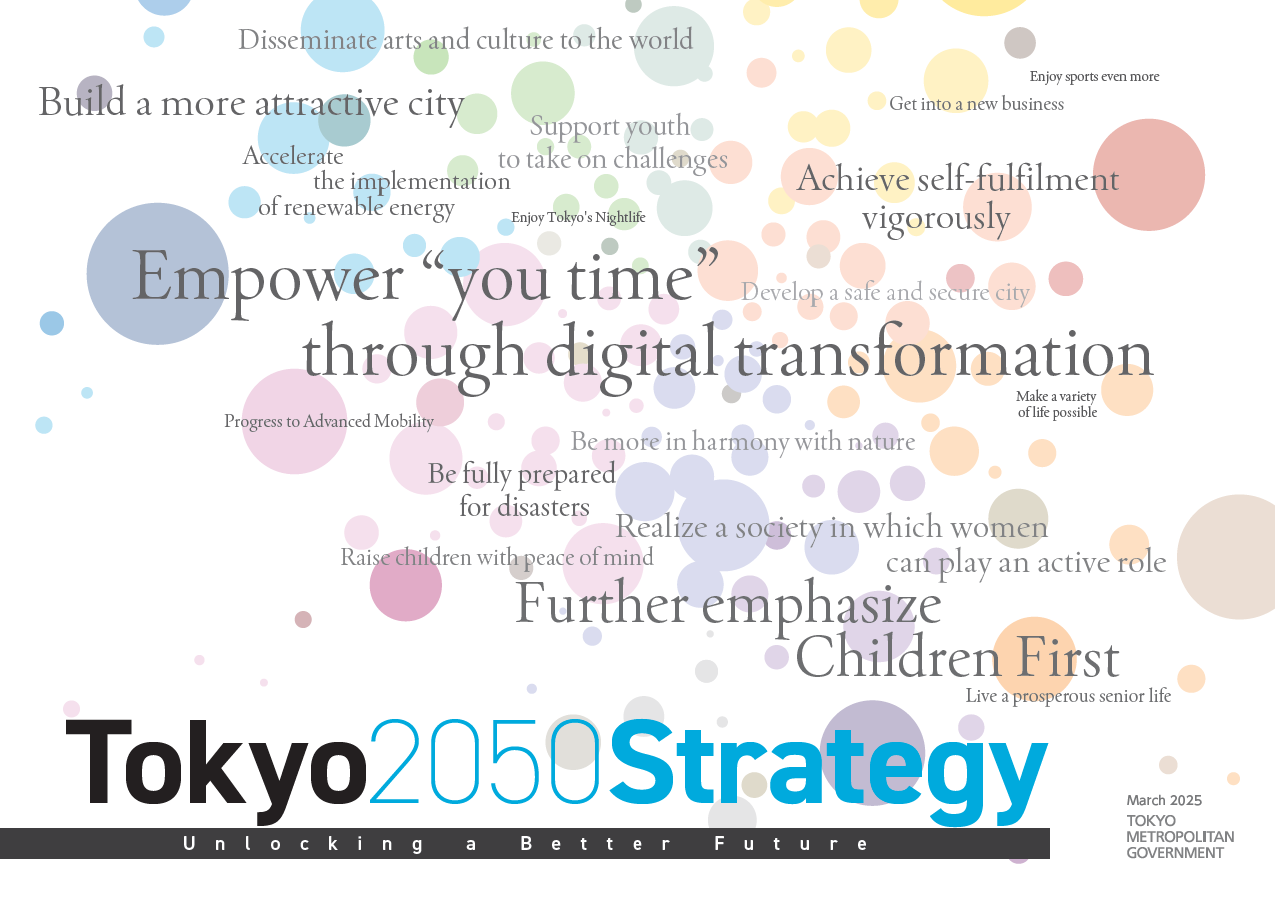
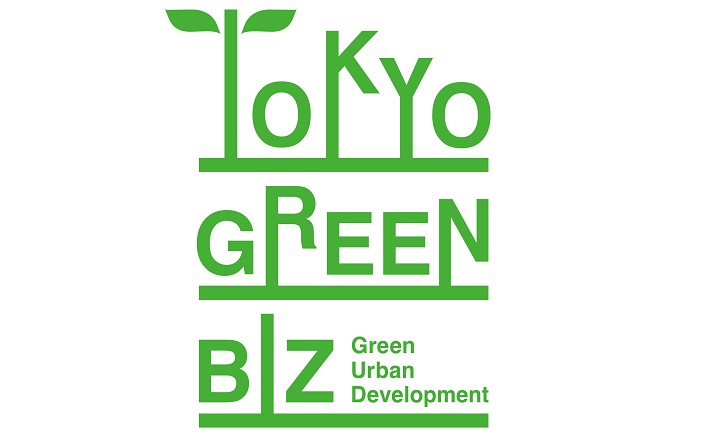

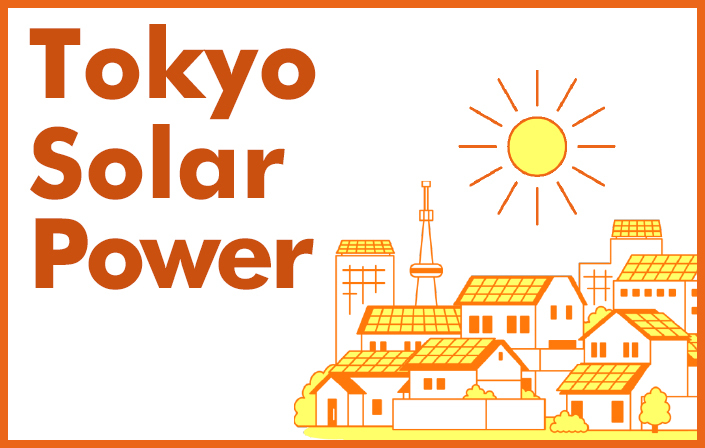
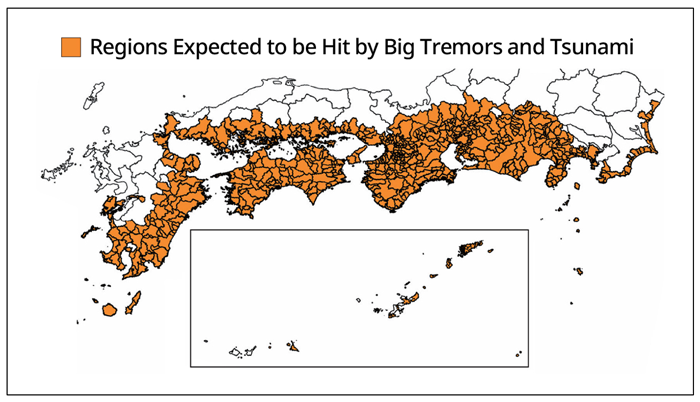
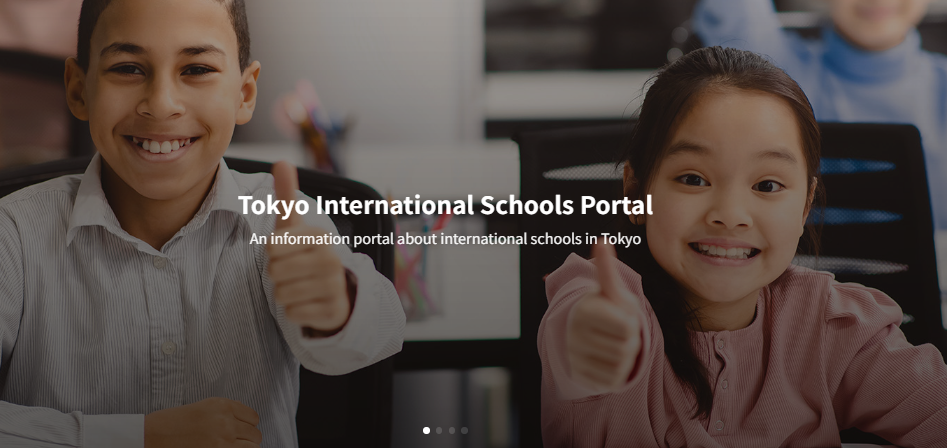
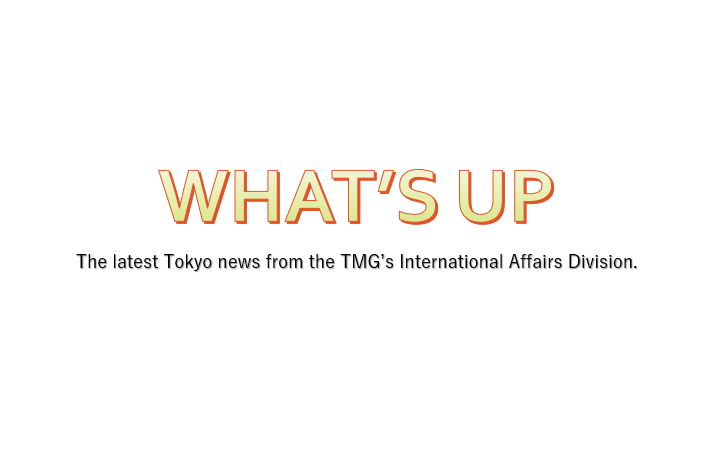
Recommended for You
Govenor Koike Calls for Innovation at FII PRIORITY Asia Summit 2025
December 1, 2025
Tokyo Governor’s Mideast Tour Highlights Multi-City Resilience Efforts and Japanese Capital’s Global Presence
November 27, 2025
Japan-U.S. Leadership Summit Held at UNU in Tokyo
October 10, 2025
TIME TO ACT FORUM 2025: Strategically Tackling Climate Change
October 7, 2025
Tokyo Governor Tours U.S., Urging Cities Worldwide to Fight Common Challenges Together
September 18, 2025
Tokyo 2025 Deaflympics (Part 1): A Leap Towards an ‘Inclusive Society’ with Sign Language
November 12, 2025
Championing Inclusive Growth: OECD and Tokyo’s Shared Vision
November 13, 2025
Governor Koike Inspects Hachijojima Island Hit by Typhoons
October 15, 2025
Tokyo Disaster Response Headquarters Meeting (2nd Session)
October 9, 2025
Selection of My Fave Umbrellas
September 25, 2025